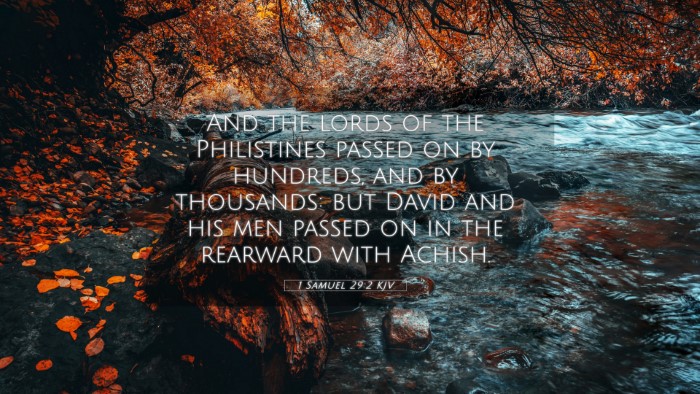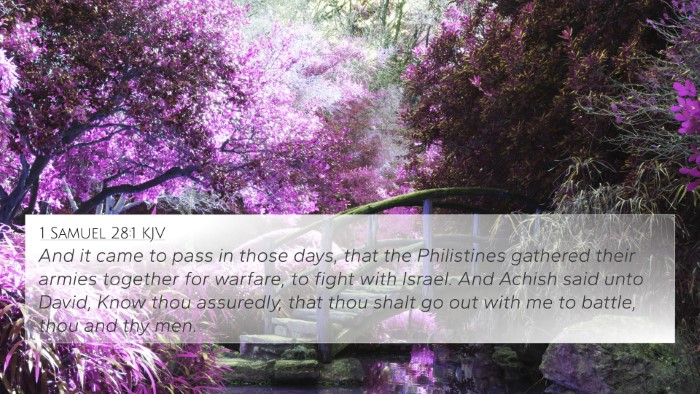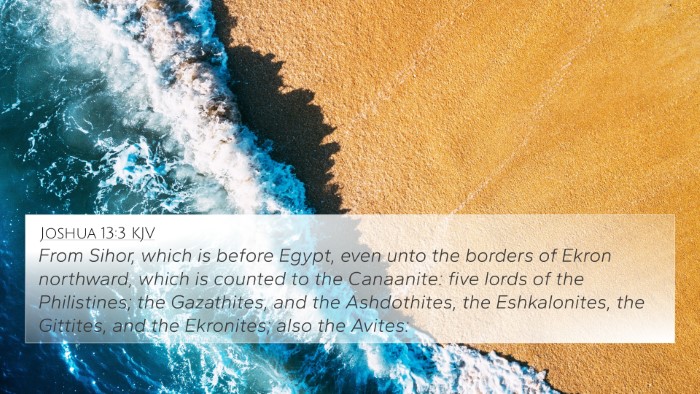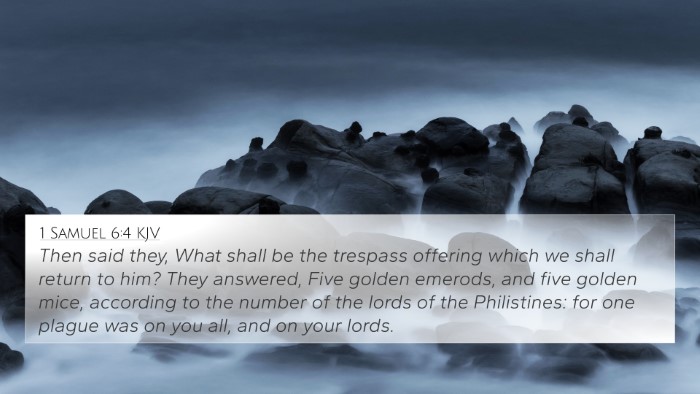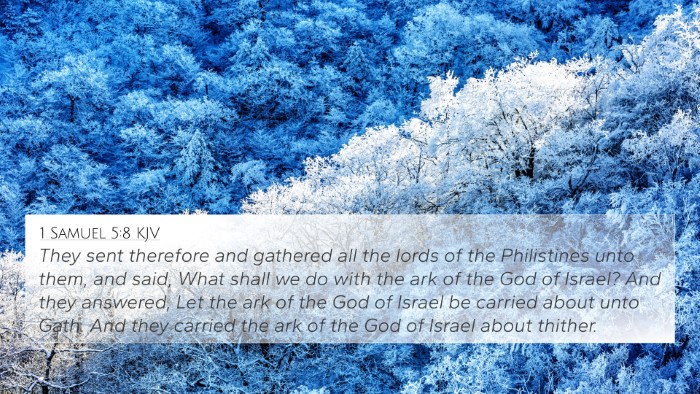1 Samuel 29:2 states: "And the lords of the Philistines passed on by hundreds and by thousands: but David and his men passed on in the rereward with Achish." This verse captures a pivotal moment when David, having sought refuge among the Philistines, finds himself in a precarious position alongside Achish, the king of Gath.
Summary of Key Themes
This verse illustrates several essential themes:
- The Loyalty of David: Despite being in enemy territory, David's presence reflects his complex relationship with the Philistines, especially with Achish.
- The Dynamics of Leadership: The multitude of leaders passing by signifies the organized military strength of the Philistines.
- Strategic Positioning: David and his men being in the rereward indicates a position of protection and potential vulnerability.
Commentary Insights
Matthew Henry: Henry emphasizes David's troubling predicament, noting that it was not wise for David to ally himself with the Philistines, yet it highlights God's providence even in dire circumstances. He points to the importance of recognizing God's hand in the protection offered to David, even among his foes.
Albert Barnes: Barnes provides insight into the political landscape at that time, explaining how David had become a part of Philistine society for survival. He notes that David's situation was precarious and laden with moral implications, and emphasizes the danger of being in the company of one's enemies while relying on them for protection.
Adam Clarke: Clarke reflects on the military formation and the significance of David's position. He suggests that while David was in the rereward, it symbolized a retreat, and the necessity of discernment when aligning oneself with those outside of God's covenant. Clarke places this event in the broader narrative of David's story, linking it to the trials he faced and God's eventual deliverance.
Connecting Verses
This verse connects to various other scriptures, illustrating themes of loyalty, providence, and the complexity of relationships within Biblical narratives:
- 1 Samuel 27:1 - David's initial decision to seek refuge with the Philistines.
- Psalm 56:1-4 - David's prayers during his time among the Philistines, expressing trust in God.
- 1 Samuel 30:1-6 - The aftermath of David's leadership and the loyalty of his men.
- 2 Samuel 1:11-12 - David’s response to the deaths of Saul and Jonathan, reflecting his loyalty to the Israelites.
- Proverbs 16:7 - The principle that when a man's ways please the Lord, he makes even his enemies to be at peace with him.
- Romans 8:28 - The assurance that all things work together for good, aligning with the narrative of divine protection over David.
- Philippians 1:12-14 - Paul’s reflection on how adversity leads to the advancement of the gospel.
Bible Verse Cross-Referencing
Cross-referencing scriptures creates a deeper understanding of the intentions behind the text.
Tools for Bible cross-referencing, such as bible concordances and cross-reference guides, can help the reader identify thematic connections.
Importance of Cross-References
Understanding connections between Bible verses through comparative analysis enriches one's study. Following are some methods to explore:
- Identify Themes: Look for recurring themes across both Old and New Testaments.
- Linking Scriptures: Trace narratives that unfold in various books, such as the experiences of David and the lessons within them.
- Comparative Studies: Analyze how individual scriptures relate within the context of larger Biblical teachings.
Conclusion
1 Samuel 29:2 serves as a multifaceted verse that not only reflects David's complex world but opens up avenues for understanding broader Biblical themes and narratives through Bible verse parallels. Through the act of cross-referencing, readers gain greater insight into God's overarching plan, the nature of loyalty, and the dynamics present in the relationships depicted in Scripture.

